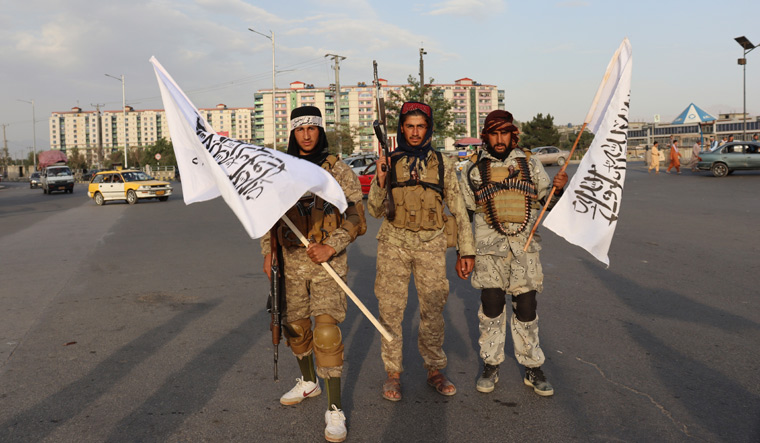Taliban officials and US representatives met to hold talks on Saturday, the first time since the latter withdrew from Afghanistan after 20 years of military presence and the former stormed into power. There were multiple topics on the agenda—containing extremist groups in Afghanistan was one, easing the evacuation of foreign citizens and Afghans from the country was another. The US had stated that they also intended to press the Taliban to observe the rights of women and girls, many of whom the Taliban are reportedly blocking from returning to jobs and classrooms, and of Afghans at large, and to form an inclusive government. The bilateral talks, however, were taut, with the Taliban warning the US not to destabilise the country, and rebuffing all offers of assistance against Islamic State radicals who have escalated attacks against Kabul.
There were also discussions on the heavily sanctioned Afghanistan's economy, teetering on the brink of collapse. "We are trying to have such meetings and gatherings with the US and other countries of the world and to discuss the current situation in Afghanistan, listen to one another's opinions," Muttaqi said, reported AFP. "The issues that people of Afghanistan are facing in terms of economy or any other issues should be resolved. The existing government of Afghanistan is committed to having good relations with other states and cooperate with others, to facilitate its people and provide them services."
"We clearly told them that trying to destabilise the government in Afghanistan is good for no one," Taliban Foreign Minister Amir Muttaqi told the Afghan state news agency Bakhtar, translated by AFP. "Good relations with Afghanistan are good for everyone. Nothing should be done to weaken the existing government in Afghanistan which can lead to problems for the people. The delegation from US decided that they will cooperate with us in vaccination and will provide human cooperation," he said.
Since the Taliban took power, Islamic State extremists have ramped up attacks on the militant group, as well as ethnic and religious minorities. On Friday, an IS suicide bomber killed at least 46 minority Shiite Muslims and wounded dozens in the deadliest attack since the U.S. departure. IS has carried out relentless assaults on the country's Shiite Muslims since emerging in eastern Afghanistan in 2014. IS is also seen as the greatest threat to the United States. The US-Taliban agreement of 2020, which was negotiated by the Trump administration, demanded the Taliban break ties with terrorist groups and guarantee Afghanistan would not again harbor terrorists who could attack the United States and its allies. Taliban had already stated that they do not want US anti-terrorism assistance and have warned Washington against any so-called over-the-horizon strikes on Afghan territory from outside the country's borders.




